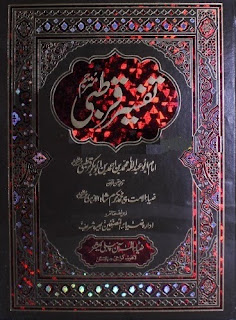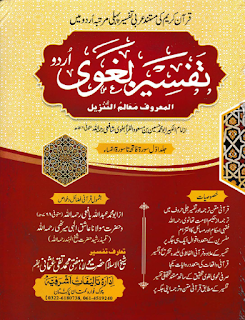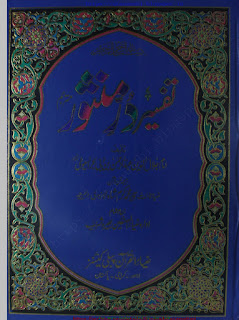Title: (1) TAFSEER AL QURTABI
AUTHOR NAME
IMAM ABU ABDULLAH MUHMMAD BIN HAJAR
Introductions Author
Muslim scholar
Imam Abu Abdullah Al Qurtubi or Abu Abdullah Muhammad ibn Ahmad ibn Abu Bakr al-Ansari al-Qurtubi (Arabic: أبو عبدالله القرطبي) was a famous mufassir, muhaddith and faqih scholar from Cordoba of Maliki origin. He is most famous for his commentary of the Quran, Tafsir al-Qurtubi.
Biography:
He was born in Córdoba, Spain in the 13th century. His father was a farmer, and died during a Spanish attack in 1230. During his youth, he contributed to his family by carrying clay for use in potteries. He finished his education in Cordoba, studying from renowned scholars ibn Ebu Hucce and Abdurrahman ibn Ahmet Al-Ashari. After Cordoba’s capture in 1236 by king Ferdinand III of Castile, he left for Alexandria, where he studied hadith and tafsir. He then passed to Cairo, and settled in Munya Abi'l-Khusavb where he spent the rest of his life. Known for his modesty and humble lifestyle, he was buried in Munya Abi'l-Khusavb, Egypt in 1273. His grave was carried to a mosque where a mausoleum was built under his name in 1971, still open for visiting today.
Views
Tafseer e Baghavi Urdu
By Imam Husain Bin Masood Baghavi
Tafsīr al-Baghawī also known as Ma‘ālim al-Tanzīl, is a classical Sunni tafsir (Qur'anic exegesis) by Husayn b. Mas'ūd al-Baghawī (d. 1122), written as an abridgement of Tafsir al-Thalabi by al-Tha'labī (d. 1035). It is generally classified as one of the books of narration-based tafsir, as it collects and presents many statements from the Sahabah and Tabi'oon. The book primarily relies on 11 reliable chains of narrations, which al-Baghawi mentions in the introduction to his work.[1] It currently exists in four volumes and eight volumes in its Lebanon edition and Cairo edition respectively.





















No comments:
Post a Comment